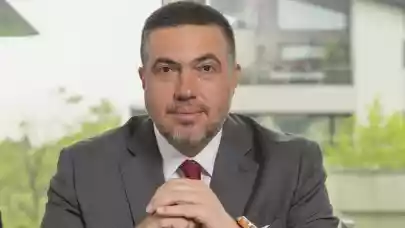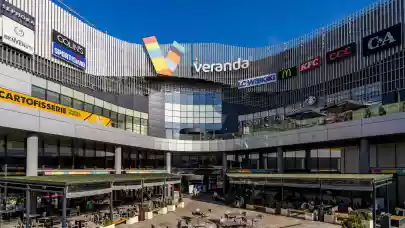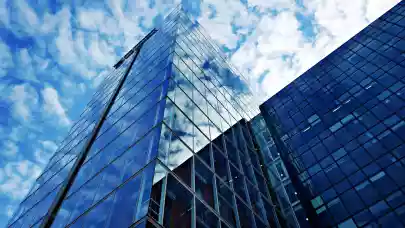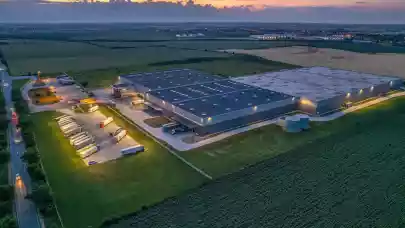
Cosmin-Savu Cristescu, Managing Director of Romanian developer Redport Capital, spoke with Property Forum about the start of a new mixed-use investment of €150 million in northern Bucharest and the continuation of the residential growth trend that has been recorded since 2023.
What are Redport Capital’s development plans for the Romanian market in 2024?
In 2024, at Redport Capital we have a well-defined strategy for all our developments. In this regard, we are preparing to kick off construction for Phase III of The Level Apartments project, for which we have been pleasantly surprised by customer interest, reflected in over 70% pre-sale contracts. If everything goes according to plan, we will also launch pre-sales for Phase IV within the same year, with construction scheduled to begin in 2025. These two phases will comprise 350 units, with an investment exceeding €45 million and an estimated sales value of approximately €60 million.
Also, we have planned this year to start the construction of Infinity Nord, our flagship project launched last year in the Dămăroaia - Străuleşti area. Conceived as a large-scale, smart, and sustainable urban regeneration project, Infinity Nord promises to become a true destination for residents in this part of the city. The entire complex is estimated to be completed by 2030 following total estimated investments of over €150 million. It will comprise 1,250 apartments, 1,500 parking spaces, and a variety of different amenities, such as commercial spaces, medical and educational services.
How much has Redport Capital invested in Romania to date and how many residential units have you delivered?
The Level Apartments, our first project developed in the Dămăroaia – Străulești area, has attracted significant interest from clients eager to find a home in a modern and well-designed community. As proof, the first two phases of the project have been sold out entirely, with the last one fully delivered in June 2023.
In total, the first two phases of The Level Apartments comprise 175 apartments plus parking spaces and commercial areas, which was delivered following an investment of approximately €16 million and a sales value of over €25 million.
How do you integrate sustainability into your projects?
Climate change and environmental concerns directly influence everything related to real estate development, and as such, it has become a constant concern for us to build sustainably. From using recyclable materials to reducing carbon footprint and integrating eco-friendly construction practices, all these elements are becoming increasingly essential for attracting potential investors and final customers alike. They translate into lower maintenance costs and a sustainable lifestyle, which are highly valued by modern consumers.
At Redport Capital we prioritise environmental sustainability by implementing eco-friendly practices and promoting renewable energy sources. This includes incorporating energy-efficient technologies, such as solar panels and energy-saving systems, into our buildings and infrastructure.
What is your outlook for the residential market in Bucharest this year in terms of demand and prices?
Judging by market trends, we could observe a significant increase in demand for new housing in 2023. This trend has also been reflected in our own projects, where we have seen a growing demand. Currently, the trend continues into the first part of 2024, but we will likely be able to draw a conclusion in Q2 based on the sales progress.
Of course, we must consider the fact that at this moment, we are facing institutional blockages, which, if not resolved, could lead to a situation where demand outstrips supply in the coming years. Housing stocks will gradually diminish, and in the absence of new construction starts, disparities in the market will be felt.
How are you funding your residential developments?
The ongoing projects of Redport Capital benefit from both bank financing and equity financing, where investors contribute cash or assets in exchange for an ownership stake in the development project. Additionally, all proceeds from the pre-sales process of our projects are used to finance construction costs.
Are you exploring potential developments in other regional cities?
At this moment, we consider that Bucharest and its metropolitan area have a lot to offer in terms of underexploited residential areas, and the demand for Redport's products is significant enough that we do not wish to stop here with development in the capital.
Of course, if we identify an opportunity in other regions of the country, we will certainly make our intention public, accompanied by a well-thought-out, long-term strategy.
From your perspective, how competitive is Romania’s residential market compared to other countries in CEE?
Romania's residential market has shown significant growth potential, driven by factors such as a growing population, urbanisation trends, and increasing disposable incomes. Additionally, Romania has been attracting foreign investment in its real estate sector, particularly in major cities like Bucharest and Cluj-Napoca.
Compared to other countries in CEE, Romania's residential market may be considered competitive in certain aspects. It offers relatively affordable property prices compared to more developed European markets, which can be attractive to both local and foreign investors. Furthermore, Romania has been making efforts to improve its regulatory framework and infrastructure to support real estate development.
How important are domestic investors for the medium and long-term development of the local real estate ecosystem?
Domestic investors play a crucial role in the medium and long-term development of the local real estate ecosystem first of all, because they provide stability and continuity to the real estate market. They have an intimate understanding of local market dynamics which allows them to make informed investment decisions and navigate challenges more effectively. A healthy balance between domestic and foreign investors can contribute to market stability.
By having a long-term vision for the development of their communities and cities, investors can focus on sustainable and responsible development practices that benefit both current and future generations.



